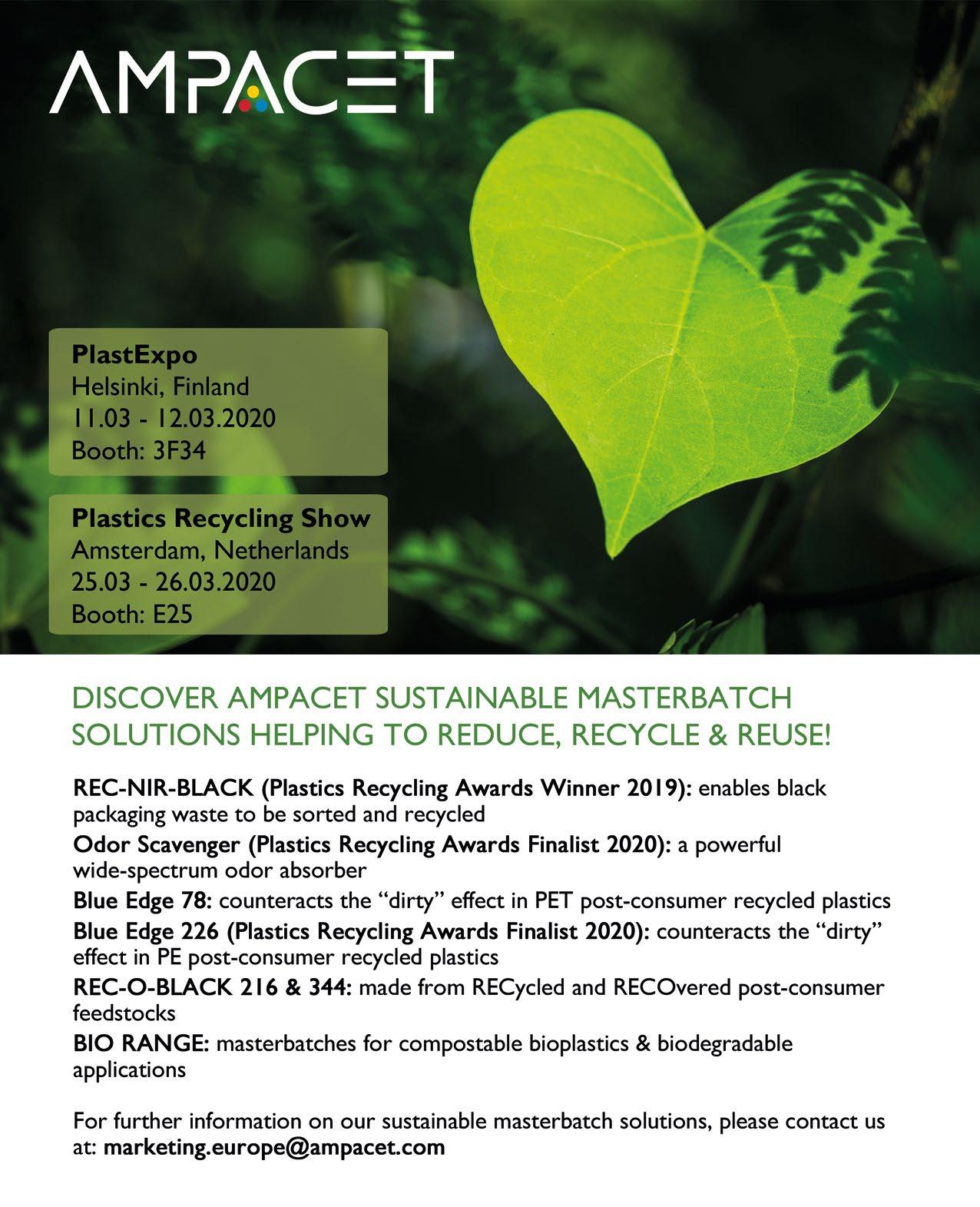
4 minute read
Save Food at interpack
THE FOOD WASTE ZEITGEIST
Bernd Jablonowski, global portfolio director, processing & packaging at Messe Düsseldorf, and director of the Save Food initiative shares with Packaging Europe how it has gained a huge trajectory of growth over the past few years. Save Food is a joint initiative of the Food and Agriculture Organization of the United Nations, the United Nations Environment Programme, Messe Düsseldorf, and interpack.
When we launched Save Food together with the Food and Agriculture Organization of the United Nations at interpack 2011, the topic of food loss and waste was not that present in the public. In the following years, many activists and initiatives committed themselves to improve the situation.
Politicians became more aware of the issue too and therefore campaigns and laws with the aim of reducing food waste followed – such as the law in France that larger supermarkets are not allowed to throw away good food easily anymore. Don’t get me wrong here: I am not saying that it was us who triggered all this, but we hit the zeitgeist in 2011.
With the changed awareness in the public, the initiative grew up to more than 1,000 members from industry, associations, NGOs and research institutes. We used the membership fees of the industry members to finance studies on food loss in Kenya and India to evaluate where there might be a leverage point for measures.
Members of the initiative started the Mango Project in Kenya, where a local producer of dried mangoes was supported and equipped to preserve otherwise spoiled fruit by drying and packaging them properly. We also held several conferences tackling the problem and its facets at interpack 2014 and 2017 as well as in Switzerland and Spain in the years in-between.
Biggest challenges in the battle against food waste Despite the increased public awareness, engagement from companies, politicians and NGOs, the problem persists at a very high level. There are no new figures to quantify the problem globally and the existing numbers are also estimates, but the one third of food lost and wasted stated by the FAO at the start of Save Food is probably still not very far away from the truth. The reasons vary. Generally, it has to be distinguished between food waste, which more often occurs in western societies due to poor meal planning, oversupply and comparatively cheap food and food loss on the other hand. The latter is a pressing problem in developing countries which lack modern harvesting methods and proper infrastructure for transportation, cooling and storage. In both cases, packaging can contribute to a reduction in food loss and waste.

In developing countries, it is basic and appropriate solutions which enable safe storage and protection against often extreme climatic conditions. This allows for the protected transport of food to places more distant than the next market, for example for processing. This creates a foundation for economic development of entire regions.
At the same time, longer shelf-lives of processed and packaged foods make it possible to supply the increasing number of people in growing cities. On the other hand, the way to solve the problem of food waste in western industrial nations is primarily by changing people’s behaviour, as the consumer is the main cause in this case.
For this reason, the most effective measures are to increase the regard for food, create a general consciousness of the problem of wasted food

Bernd Jablonowski
and impart knowledge on the methodical purchasing, storage and consumption of food. Intelligent packaging which tells that its content is still fine for human consumption, no matter what the best before date says, is a suitable measure to support the behaviour-centred approach. Apart from that, packaging that guarantees a longer shelf life really does help, too.
Of course, packaging itself has to be as sustainable as possible. However, especially in the current sustainability discussion, people tend to forget that food packaging preserves its content from spoiling. If you reduce the packaging, compromising this function, leave it off completely or substitute existing materials by ostensibly more sustainable materials, which may be worse in preventing spoilage, then more resources are lost in the end than are saved.
The Save Food Festival The Save Food Festival brings the topic of Save Food to the city of Düsseldorf and addresses the public for the first time. The reasons for this step are those I have just mentioned before. The SAVE FOOD festival has been postponed until 25 February to 3 March 2021.
Its core elements include an interactive exhibition, conferences and the presence of start-ups. The latter are part of the Start-up Week Düsseldorf, an event that comprises around 130 events, workshops and pitches, which will take place at various locations throughout Düsseldorf.
Specifically, the conference section and the ideas of the involved startups are a good source of inspiration for the professionals at interpack. There will be a shuttle available between the trade fair grounds and the Rheinterrassen so that the venue can be easily accessed. n











